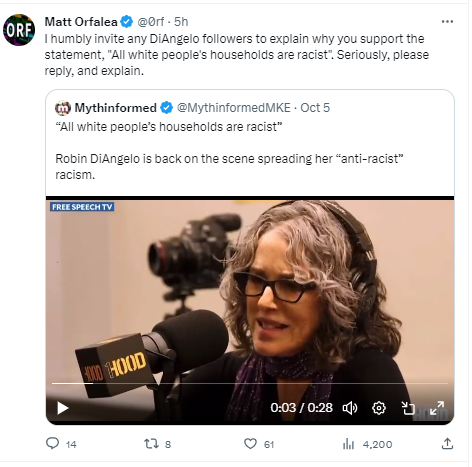Andrew Sullivan’s Prescription for Curing our Bad Case of DEI
We've got an enormous problem with DEI. It goes completely against what all of us seek when we need the best surgeon to operate on us, the best engineer to design a new bridge or the best pilot to safely fly us home. Even though we all know this, many of us have been afraid to say this lately. It is entirely rational and humane to seek out the best qualified people to fill jobs. Full stop. Although it is often a challenge to decide who is the best qualified person for the job, there is no close competitor to basing our decisions on merit.
Andrew Sullivan succinctly articulated the way forward:
End DEI in its entirety. Fire all the administrators whose only job is to enforce its toxic orthodoxy. Admit students on academic merit alone. Save standardized testing — which in fact helps minorities, and it’s “the best way to distinguish smart poor kids from stupid rich kids,” as Steven Pinker said this week. Restore grading so that it actually means something again. Expel students who shut or shout down speech or deplatform speakers. Pay no attention to the race or sex or orientation or gender identity of your students, and see them as free human beings with open minds. Treat them equally as individuals seeking to learn, if you can remember such a concept.
I've promoted this idea throughout the Great Awokening, hearing mostly crickets or criticism from intelligent people. Countless people I know have been sitting on their hands--refusing to say what they really think. They worry, often justifiably, that saying out loud what they really think will cost them their jobs and/or their reputations.
Speaking out in favor of merit as the only basis for hiring isn't just a platitude or an emotion. Consider, finally, this excellent article setting for the many reasons for hiring solely on the basis of merit: "In Defense of Merit in Science." Here is the abstract:
Merit is a central pillar of liberal epistemology, humanism, and democracy. The scientific enterprise, built on merit, has proven effective in generating scientific and technological advances, reducing suffering, narrowing social gaps, and improving the quality of life globally. This perspective documents the ongoing attempts to undermine the core principles of liberal epistemology and to replace merit with nonscientific, politically motivated criteria. We explain the philosophical origins of this conflict, document the intrusion of ideology into our scientific institutions, discuss the perils of abandoning merit, and offer an alternative, humancentered approach to address existing social inequalities.

